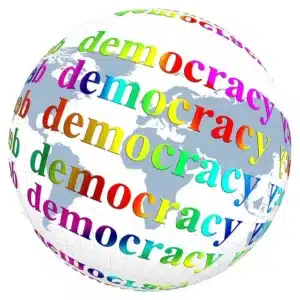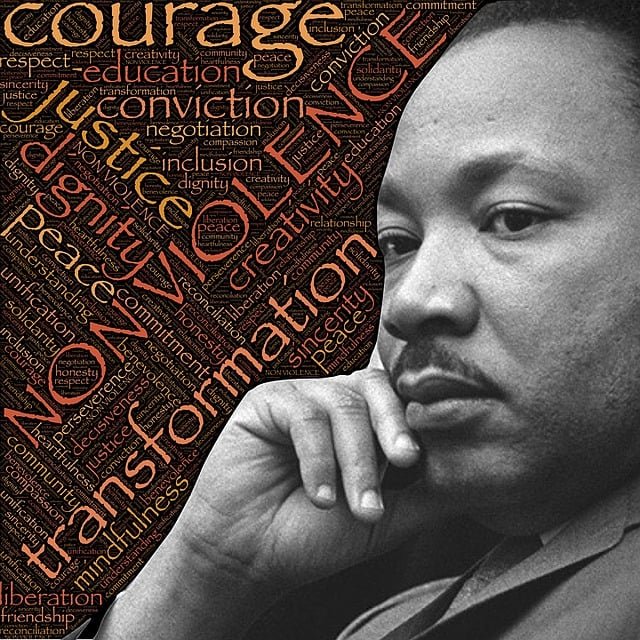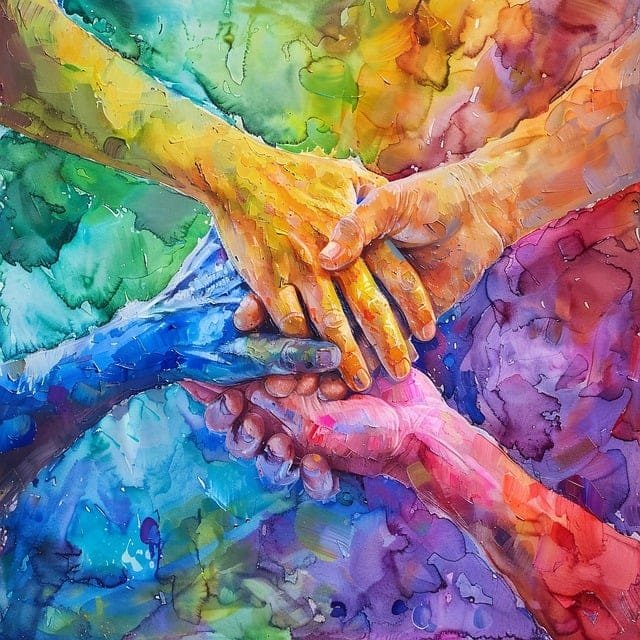Democracy, Communication and Cooperation

In this post I am writing about 2 fundamental aspects of democracy, cooperation and communication, to manifest a new era of life on earth. We are living in a dramatic period of Earth’s history and, if we want a better life for all, we need to make some choices about how we want to live our lives.
The challenges of Communication for Democracy
We live in challenging times, where propaganda and fake news confuse and disrupt the minds of many, especially those who are inclined to accept so-called ‘conspiracy theories’, and we need reliable information about what is happening in the social and political spheres.
This is more visible in countries with non-democratic governments, where rulers base their power on manipulation rather than democratic choice in elections, and manipulate public opinion to ensure their acceptance by the governed.
We must therefore question the sources of information that daily spread false information to deceive the unwary. We must, as far as possible, compare these sources of information with the facts and avoid spreading “bombastic” news without first doing this work of questioning and comparing facts.
As we get used to this awakened attitude, we will discover that, beyond the many sources of false “news”, there are also reliable sources that make the right to inform and to be informed an important task for democracy.
And we must value these sources, because without reliable information about reality it is not possible to form a “public opinion” capable of taking decisions that strengthen democracy.
In today’s world, reliable information is one of the most important tools for democracy and citizenship, as it enables citizens to make decisions in all areas of democratic life, allowing us to separate the ‘wheat from the chaff’.
Freedom of expression and active participation in the “res publica” are the pillars on which citizens’ decision-making rests. This is all the more important when it comes to voting, which is the expression of the power of each individual in democratic societies. In order to exercise one’s full rights, it is essential to be informed.
That is why there must be a democratic awakening of opinion to question the living conditions in undemocratic countries, to show people the evidence that they give worse living conditions than the living conditions in democratic countries.
Cooperation is the Key to a Better Life for All
You can’t have democracy without cooperation. Cooperation is the first fundamental aspect of a democratic society, which does not focus on the selfish interests of a few, but on the interests of all.
Although it may seem obvious that all societies cooperate easily, this is not the case. It is necessary to have developed a mental level that goes beyond the selfishness and narcissism of “me first” for citizens to choose to cooperate and live in democracy.
When individualism is rampant in society among those who do not want to give up what they believe is their right to ‘have more’ than others, even if it means poverty for many people, it is not possible to cooperate because there is an elite that focuses exclusively on itself and its interests and needs, considers itself superior to others, and is indifferent to the suffering and needs of others.
In this kind of society, it is ‘every man for himself’, there is no interest or empathy to look at others, to help and cooperate in order to reduce the distance that separates the rich and the poor, there are people who see themselves as an elite, separate from those whom they think have no social weight.
What matters to such an elite is always to have more and to be seen as better than others, showing total indifference to the needs and sufferings of others.
Unfortunately, today we are witnessing the rebirth of this selfishness among the elites, who are completely indifferent to anything that does not contribute to their exclusive well-being or to their insatiable need to feel superior to everyone else.
However, people living in such societies may ask themselves whether this is the society they want to live in, where the struggle for resources, money and power on the part of a few keeps most of the population in poverty and misery, disregarding their human condition.
Elites divide and separate, leading to the isolation of society. The majority of a nation’s people, however, can find ways to unite to achieve common goals through cooperation in various aspects of social life and at work.
Cooperation does not destroy individual rights, on the contrary, it can strengthen them when people unite around common goals, as happens when workers form a cooperative, and other strategies based on the union of each individual’s efforts to strengthen their efforts and where everyone receives the fair results for their work.
Cooperation means recognizing the equal rights of individuals and using each person’s individual talents to achieve common goals so that everyone can have a better life.
Democracy is the Government of the Future
Many of us are used to thinking that elites govern better than the people because the people supposedly ‘don’t know how to make good decisions’ and the elite are better at it.
However, the evidence shows that people living in non-democratic governments are worse off than those living in democratic governments, and that the elite who are supposed to govern for the people and improve everyone’s living conditions actually govern to create a series of privileges that increase the leaders’ personal wealth by exploiting the product of everyone’s labour.
This also shows that it is necessary for people to be aware of the need to be more participatory and vigilant against the forms of manipulation spread by the propaganda that proliferates in authoritarian countries to make people ignore that life is better in countries where we have democratic governments.
This requires everyone to think for themselves, to openly discuss issues and problems that affect people on a daily basis, and to take more responsibility for their lives rather than allowing others to decide for them.
Not Wanting to Make decisions is what Sustains Authoritarian Power
A characteristic of many people who accept the authoritarian power matrix is that they don’t want to make decisions, so they delegate responsibility for the effects of those decisions to the authoritarian leader.
In this day and age, it would seem that most people like to be free and take responsibility for making decisions, but the reality in authoritarian countries shows that this is not true for a large number of people who prefer to ‘follow the leader’ even when there is evidence that his decisions lead to the suffering of the people.
History has shown that when people decide to take their destiny into their own hands and take responsibility for the results, change occurs, as it did in the transition from absolute regimes centred on the person of the leader in many European countries in the past.
The evidence is there and, at this time in history, we need people to use their freedom to choose a better future. But you can’t force anyone to live in a democracy.
Living in a democracy requires a state of mind in which everyone agrees to take responsibility for their own lives and to work and cooperate with others so that everyone can have a better life.
It’s a state of mind in which we no longer see one another as separate and remote, but in a context of unity and proximity, where the ‘good’ of some is also the good of all, because we discover that by cooperating and working together, we improve the lives of all, as shown by the better living conditions in democratic nations.







